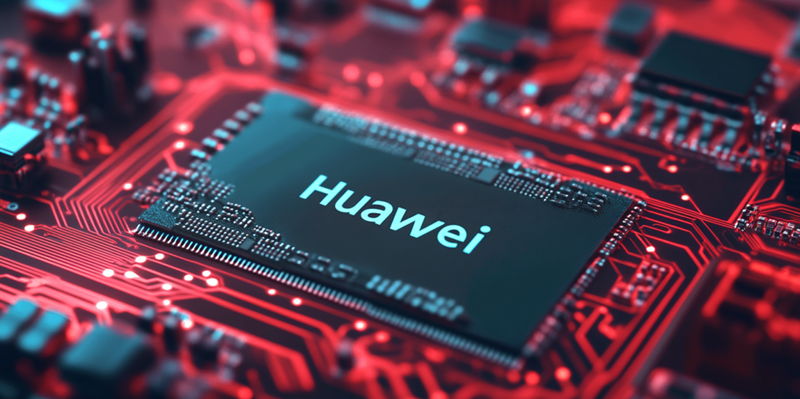In a move underscoring the deepening complexities of global trade and technology, ByteDance, the juggernaut behind the wildly popular platform TikTok, has commenced integrating Huawei’s Ascend 910B AI chips into its operations. This pivotal decision marks ByteDance’s transition towards embracing domestically produced AI hardware to counteract the escalating US trade restrictions and unpredictable supply chain circumstances. By investing significantly in over 100,000 AI chips from Huawei, ByteDance exemplifies a trend among Chinese tech companies to bolster autonomy and reduce reliance on foreign technology entities like NVIDIA.
Navigating Geopolitical Pressures
ByteDance’s strategic pivot is deeply rooted in the evolving geopolitical landscape, particularly the stringent US trade policies targeting Chinese tech behemoths. These policies have not only disrupted but also complicated the supply of critical tech components such as NVIDIA AI chips, essential for executing high-performance AI tasks. Facing this adversity, ByteDance and its contemporaries within the Chinese technology sector are increasingly turning inward, identifying and utilizing reliable domestic alternatives to mitigate their dependency on US-based suppliers.
Amid these circumstances, ByteDance’s acquisition of over 100,000 Ascend 910B AI chips from Huawei stands out as a major commitment towards fostering domestic technology. Despite receiving only 30% of the order due to Huawei’s own supply constraints, ByteDance’s steadfastness in this strategic direction reflects an acute adaptation to the shifting geopolitical dynamics. This scenario underscores the paramount importance of securing a reliable AI hardware supply, an endeavor growing more complex within the current international trade environment.
Balancing Performance and Cost
ByteDance’s approach to incorporating Huawei’s AI chips reveals a well-thought-out and layered strategy. The utilization of the Ascend 910B chips is primarily directed towards less-intensive AI tasks, while high-end NVIDIA chips are reserved for critical functions necessitating unparalleled performance. This dual-pronged strategy allows ByteDance not only to manage costs efficiently but also to ensure that its core operations remain unaffected by potential supply chain disruptions.
This balancing act epitomizes ByteDance’s ingenuity and adaptability in navigating the intricate landscape of technology logistics. By leveraging Huawei’s AI chips for auxiliary functions, ByteDance manages to circumvent geopolitical challenges without compromising its technological edge. This pragmatic approach highlights ByteDance’s commitment to innovation, even amid external constraints, and sets a benchmark for how other companies might address similar challenges.
The Ripple Effect on the Chinese AI Industry
ByteDance’s strategic shift has far-reaching implications, influencing not just the company but also the broader Chinese technology industry. This move is part of an increasing trend among China’s tech giants to rely more substantially on domestic hardware and technology solutions. As trade tensions between the US and China persist, this concerted push towards self-reliance is gradually reshaping the Chinese technology landscape, fostering a climate of innovation and resilience grounded in domestic capabilities.
Leading tech enterprises across China are mirroring ByteDance’s strategy by investing significantly in domestic research and development initiatives. Huawei, despite grappling with its own supply chain challenges, exemplifies this effort with its plans to introduce the next-generation Ascend 910C AI chip. This upcoming chip aims to directly compete with established players like NVIDIA, further consolidating Huawei’s pivotal role in the domestic AI sector. This trend underscores a broader industry movement as companies align with national strategies to mitigate risks and ensure technological progression.
Overcoming Supply Chain Challenges
The supply chain constraints faced by ByteDance in obtaining Huawei’s AI chips illustrate the broader logistical challenges confronting the tech industry. Despite placing a substantial order for over 100,000 chips, ByteDance only received a fraction of its demand, highlighting the difficulties even large corporations encounter in securing essential components. These constraints stem from Huawei’s own navigation through global supply chain disruptions and US sanctions, emphasizing the widespread impact of geopolitical pressures on tech logistics.
ByteDance remains optimistic about the future availability of these crucial AI components, displaying resilience and strategic foresight. This scenario reflects a broader trend within the industry where companies are actively devising strategies to navigate and mitigate the impacts of external pressures effectively. ByteDance’s continued investment in Huawei’s AI hardware, despite these hurdles, underscores the company’s commitment to domestic technology while showcasing the broader industry’s adaptability.
The Future of AI Hardware in China
ByteDance, the powerhouse behind TikTok, is taking a significant step by incorporating Huawei’s Ascend 910B AI chips into its operations. This strategic move highlights the growing complexities in global trade and technology. By opting for domestically produced AI hardware, ByteDance aims to address and mitigate the repercussions of escalating US trade restrictions and volatile supply chain issues. The transition underscores a broader trend among Chinese tech firms to enhance self-reliance and diminish dependence on foreign technology, especially from companies like NVIDIA. With substantial investments in over 100,000 AI chips from Huawei, ByteDance demonstrates a concerted effort to strengthen its technological autonomy. This shift not only signifies a response to geopolitical pressures but also marks a pivotal point in how Chinese technology companies navigate the international landscape. By choosing Huawei’s AI chips, ByteDance is positioning itself to better adapt to an increasingly uncertain global market, ensuring it can continue to innovate and compete on a worldwide scale.

